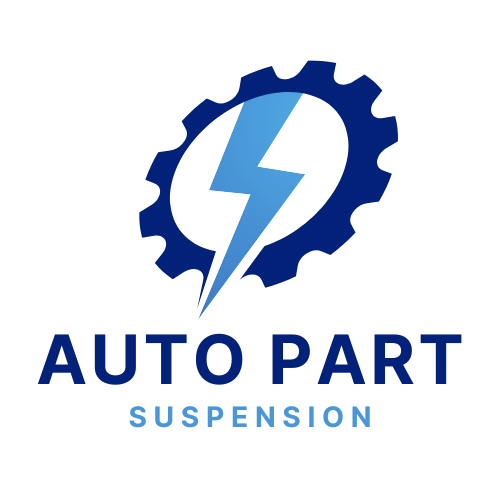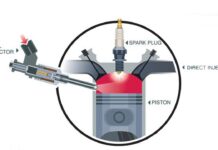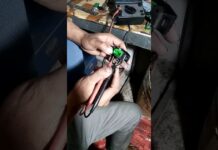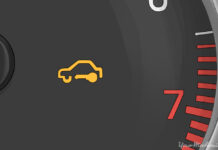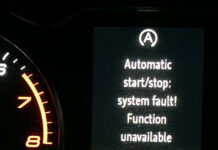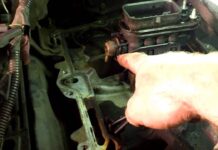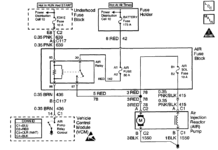What is an alternator and how does it work? What are the symptoms for alternator malfunction? How does the alternator function ?….
What is Alternator?
The battery provides the energy needed to power the electric equipment when the engine is off. However, the battery is limited in its capacity and can not continuously supply the vehicle’s receivers with energy. This is why the battery needs to be charged constantly and the receivers fed throughout the engine’s operation. The charging system performs this task.
To meet electricity requirements, alternators are used in automobiles. An alternator, also known as an alternating current generator (AC), converts mechanical energy into electric energy. Also called: alternatOder or alternating current generator . To activate the alternator, the engine must be running. It generates electric current according the speed of the motor. It recharges the battery, and provides electricity for the vehicle.
What is Mechanical Energy?
A type of energy, mechanical energy, is an energy that an object gets from its motion or position. There are many components and parts to the engine. When the engine is turned on, the crankshaft turns. This rotation is a type of mechanical energy which is transferred to the alternator. The alternator converts this mechanical energy into electrical energy. It creates an alternating current.
How does an alternator work?
An alternator is a device that transfers power from the engine to its belt. It works on the principle of producing current from a conductor that is fixed in a moving magnet field. The alternating current is then converted to DC by diodes, and the battery is then charged. It is also fed into electric receivers. The regulator protects all receivers from high voltage by limiting charging voltage to a set value.
To obtain constant voltage in the alternator, the magnet must rotate at the same speed as the motor. The alternator’s speed cannot be maintained constant because the engine moves at different speeds depending upon road conditions. An electromagnet, which is a permanent magnet, is used to overcome this problem and provide constant voltage.
An electromagnet consists of an iron core with coils wound onto it. When current flows through the coils the core becomes magnetic. The amount of current that flows through the coils will affect the magnetization. The alternator rotates at low speeds, so the current flows faster. However, the reverse happens: the alternator rotates at high speeds and the current decreases. The voltage regulator (or conjector) controls the amount of current that passes through the electromagnet. The alternator therefore produces a constant voltage, regardless of engine speed.
Alternator Malfunction Symptoms
An alternator that is not working properly can cause serious damage to your vehicle. However, there are signs that the alternator is failing.
Vibration in Headlights
Flickering headlights is one of the first signs that an alternator problem has occurred. This is a red flag if the headlights become brighter or dimmer when the engine speed is increased or decreased. An alternator that functions well will keep the headlights stable regardless of engine speed.
Your headlights may not be as bright as they used too. They also might flicker. A problem could also be indicated by dimming lights in the instrument cluster. The alternator may not be producing enough power if you see flickering or dimming.
Weak or dead battery
An alternator failure can cause a weak or dead battery. The alternator’s job is to charge the battery. If the battery does not charge, it could be that the battery has run out of juice or the alternator is failing. This can be explained in several ways. The alternator is likely to be the problem if the instruments cluster lights are lit up brightly before you start the car. When the vehicle isn’t running, electric receivers draw energy from the battery. The battery will be quickly depleted by this.
Strange Sounds
There are many moving parts in an alternator. The alternator has many moving parts. If one of them fails or breaks, it can make unusual noises. If the connector (voltage regulator), sends more signals to an alternator for charging, it can make a whistling noise. You should inspect the alternator if you hear a rubbing sound or whistling in your vehicle.
Hard Engine Running
Vehicles are not limited to working with gasoline. They can also work with electricity. Your alternator is responsible for igniting the gasoline by powering the spark plugs. The alternator could be defective if the engine is not starting or struggling to run. This problem could also be caused due to a weak or dead battery. After you’ve ruled out the possibility, it is worth checking your alternator.
Warning Lamp on the Instrument Panel
An indicator lamp, which is usually a battery, will light up on most vehicles’ instrument panels if the alternator goes out. Some vehicles include an “ALT” (alternator) or “GEN” Warning lamp for alternator. Alternators generally have an output voltage of 13 to 15%. The voltage can drop to dangerous levels if they stop working. This activates the warning light. This warning lamp may flash several times per minute during the initial phase.
Electrical Faults
Your vehicle’s most powerful source for electricity is the alternator. If the alternator malfunctions, some electrical equipment might not function properly. Many electrical faults could occur. You may experience slower opening and closing of your windows. Other electrical equipment affected include central locking and windshield wipers.
These faults all indicate that the alternator has failed. However, it should be checked before it is replaced.
